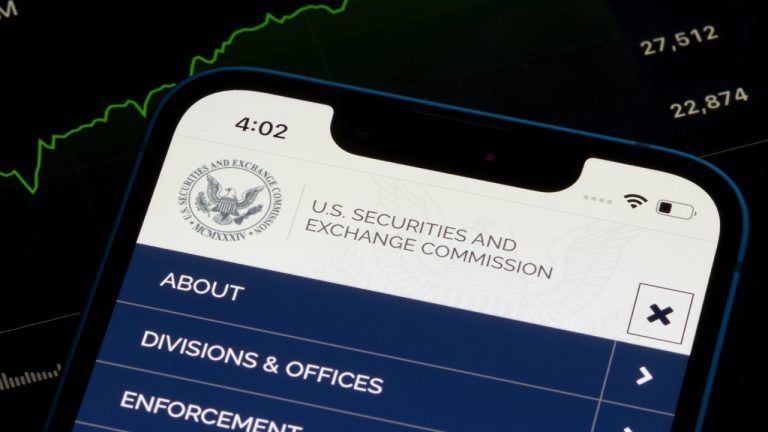ARTICLE AD BOX
TLDR
- Trump names former SEC Chair Jay Clayton as U.S. Attorney for SDNY
- Clayton previously oversaw SEC from 2017-2020 and was involved in crypto regulation
- Clayton signed off on Ripple lawsuit before leaving SEC
- SDNY office recently prosecuted SBF, resulting in 25-year sentence
- Trump previously attempted to nominate Clayton to this same position
President-elect Donald Trump has announced his intention to appoint former Securities and Exchange Commission (SEC) Chairman Jay Clayton as the U.S. Attorney for the Southern District of New York (SDNY).
The appointment would put Clayton in charge of one of the nation’s most prominent federal prosecutor offices.
Clayton, who led the SEC from 2017 to 2020, would take over the same office that recently secured a conviction against former FTX CEO Sam Bankman-Fried.
The SDNY office, under current U.S. Attorney Damian Williams, successfully prosecuted Bankman-Fried on seven fraud and conspiracy charges, resulting in a 25-year prison sentence.
During his tenure at the SEC, Clayton played a key role in shaping cryptocurrency regulation. He oversaw the creation of the SEC’s DAO Report, which established the agency’s broad jurisdiction over the cryptocurrency industry. Clayton notably maintained that most initial coin offerings (ICOs) should be classified as securities, a position later reinforced by current SEC Chair Gary Gensler.
Before leaving the SEC in December 2020, Clayton made several important decisions affecting the cryptocurrency sector. One of his final actions was approving the SEC’s lawsuit against Ripple Labs, a case that continues to move through the federal appellate court system.
A judge later ruled that Ripple had not violated federal securities laws in making XRP available to retail traders through exchanges.
This is not the first time Trump has considered Clayton for this position. A previous attempt to nominate him as U.S. Attorney for SDNY was made during Trump’s first term, when the administration sought to replace then-U.S. Attorney Geoffrey Berman.
Since departing from the SEC, Clayton has maintained active involvement in the financial sector. He currently serves as a senior policy advisor at Sullivan and Cromwell law firm, while also providing advisory services to various cryptocurrency firms.
Trump’s announcement described Clayton as “a highly respected business leader, counsel and public servant,” highlighting his experience in both public service and private sector roles.
The nomination comes as part of a broader series of appointments announced by Trump following his reelection. Other notable nominations include Robert F. Kennedy Jr. for the Department of Health and Human Services and Representative Matt Gaetz for U.S. Attorney General.
The president-elect has also named Senator Marco Rubio as his choice for Secretary of State and former Representative Tulsi Gabbard as Director of National Intelligence.
In addition to traditional cabinet positions, Trump has proposed new roles, including the appointment of Elon Musk and Vivek Ramaswamy as co-heads of a Department of Government Efficiency. This new department would require Congressional approval to become an official governmental entity rather than an advisory committee.
If confirmed, Clayton would lead an office with a long history of handling major financial crime cases. The SDNY has earned a reputation for prosecuting high-profile cases involving corporate fraud, securities violations, and financial market manipulation.
The SDNY’s jurisdiction covers Manhattan and several other New York counties, making it a crucial office for prosecuting financial crimes due to its oversight of Wall Street and major financial institutions.
Clayton’s experience in securities regulation and his familiarity with financial markets could prove relevant to his new role, as the SDNY frequently handles cases involving complex financial transactions and market regulations.
The appointment would represent a shift from Clayton’s regulatory role at the SEC to a prosecutorial position at the Department of Justice, where he would be responsible for bringing criminal cases rather than civil enforcement actions.
As U.S. Attorney, Clayton would oversee a team of federal prosecutors handling various types of cases beyond financial crimes, including terrorism, public corruption, and organized crime.
During his time at the SEC, Clayton’s approach to cryptocurrency regulation shaped many of the ongoing regulatory frameworks that continue to influence the industry today.
 1 week ago
12435
1 week ago
12435










 English (US) ·
English (US) ·